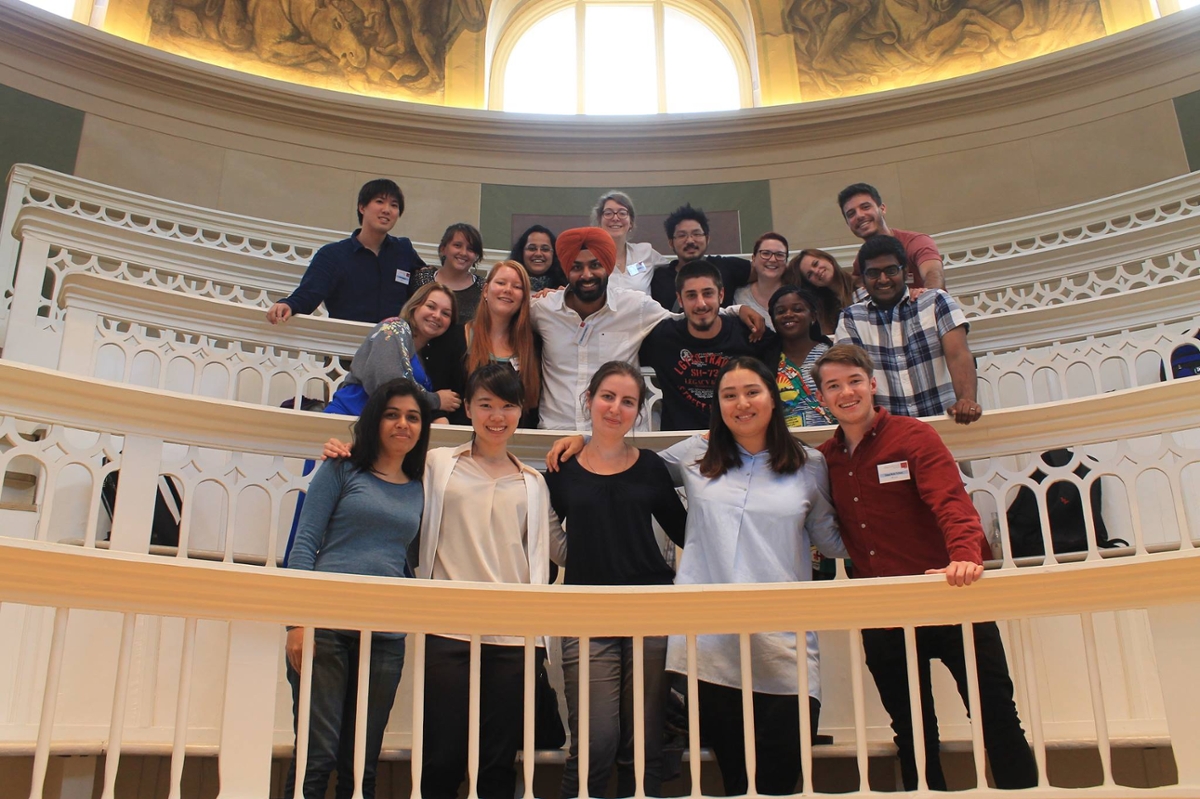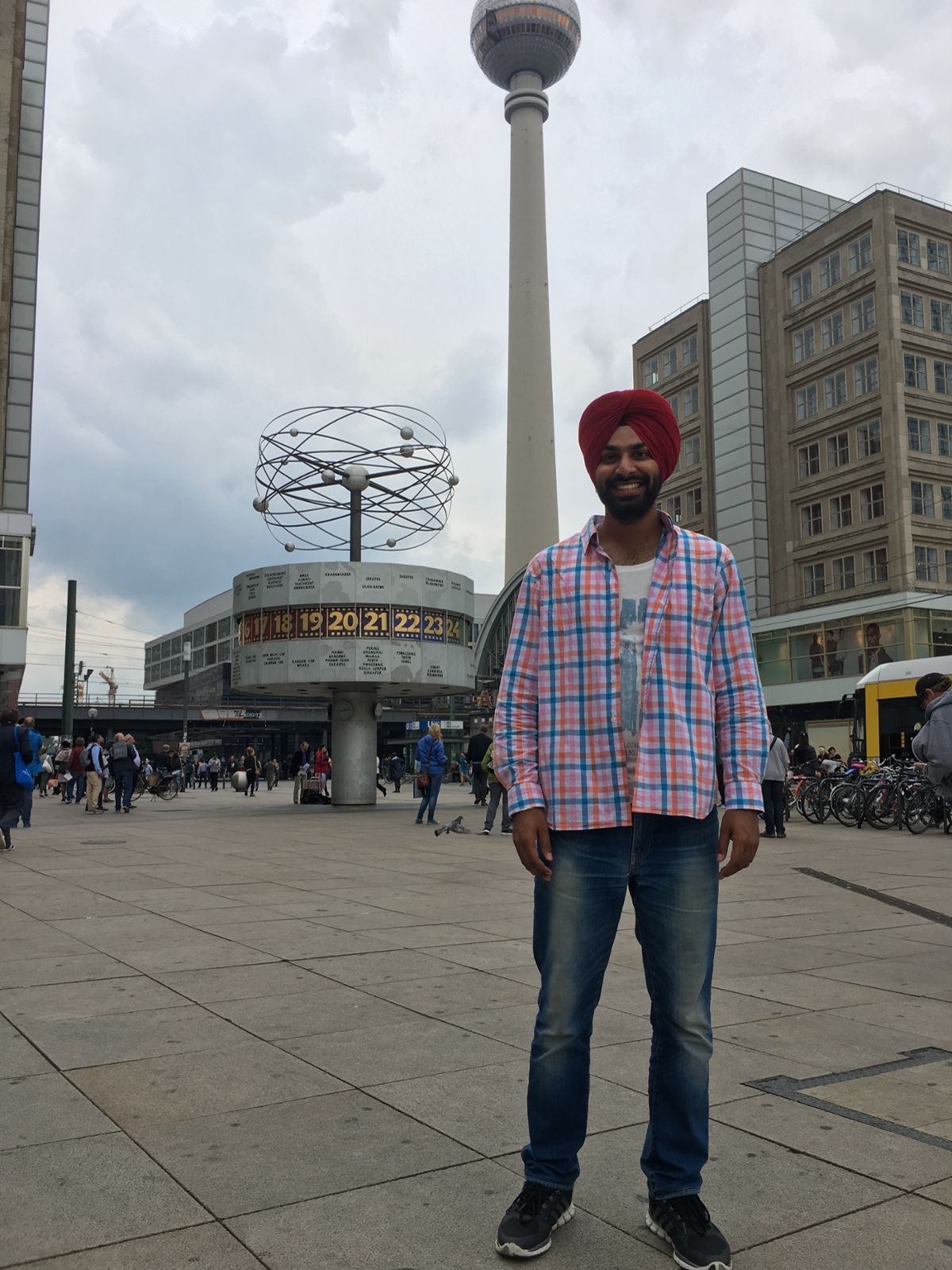
Training, networking, and exploring Europe
Who can imagine that in a period of three weeks you could learn so much, could make deep connections with the researchers from 18 countries, and have so many varied experiences?
By UpkardeepUpkardeep Singh is a second year PhD student with the Canadian Centre for Health and Safety in Agriculture (CCHSA) at the College of Medicine.
If someone asked me to rank summer school experiences by theoretical learning, practical hands on training, networking, and tourism, I would rate ZIBI Summer school at the top without any doubt. Last month I attended the ZIBI summer school in the capital city of Germany, Berlin, along with 18 young researchers across the world. The theme of this year’s ZIBI Summer School was “Pathogen-Host Interplay”, which was comprised of one week of lecture series, a 2-day Scientific Symposium on “Ecology of Infectious Diseases," and 3 days of practical hands on training on the topic of choice.
On the way from Tegel airport to my accommodation, I wondered about the ‘curvy B’ in the names of majority of roads on the sign boards. First thing I did after connecting my cell to Wi-Fi of Metropol hostel was a google search: “How to pronounce curvy B of German in English”. After understanding it’s pronunciation as ‘ss’ and its use in German word ‘straße’ as meaning ‘street’, I had felt like I could then speak few words of German language. For example: Alexanderstraße, Friedrichstraße, Oranienburger Straße.
After feeling little confident with the German language, it was the right time for guided walking tour to Berlin’s famous places, which was scheduled before the start of our actual training. During the tour, we walked through the remnants of Berlin wall on the roads, about which I had read several times in the history books. We also visited the Brandenburg gate, and Reichstag (government) building, with its glass dome which has 360-degrees view of the surroundings of city.

The training part of summer school was kicked off with an intensive series of lectures during the first week. Each day the group of local scientists covered topics such as: Immune System; Bacterial, Viral, and Parasitic diseases; Principles of Epidemiology; and Bioinformatics. Considering that all the international students were from diverse training backgrounds, I liked the way they started the sessions with the basic introductions about the topics during first lectures each day. Further, they moved on to the latest research knowledge on cellular, molecular, and pathological aspects of infectious diseases in the subsequent 4-5 lectures.
During the evenings of first week, we visited a couple of museums and attended social events. In the Medical History Museum, there is huge collection of wet and dry specimens of various organs, from the era of great scientist Rudolf Virchow. I was surprised to see the similar staining equipment of 19th century which I am still using in my lab. In addition, they organized a barbeque party with ZIBI graduate students to socialize and network.
In the second component of Scientific Symposium, we have attended several talks of invited speakers on the theme of “Ecology of Infectious Diseases,” at Humboldt-Universität.
It was a good experience to interact with the internationally renowned researchers.
During last few days, I was trained on couple of specific techniques. Firstly, I selected training on Cell Sorting and Flow Cytometry technique, considering its high application in my field of Immunology. For the first time, I got a chance to work on my own blood cells and I was very excited to see my own blood cells under the microscope.
Secondly, I was trained on protocol for the Isolation of Neutrophils from the human blood samples. During this training, I experienced excellent example of collaboration and planning within the lab. In that lab, lab technicians brought human blood sample from city hospital in the early morning, and isolated the cells and distributed it among the 4-5 graduate students for their own experiments. I liked this team approach of working, since we could compare the results of different experiments knowing we were performing treatments on blood cells of the same person.
Summer school was ended with visit to the Berlin wall memorial and a farewell lunch at local restaurant. However, I extended my stay after training and visited few other places of Europe before coming back to Saskatoon for starting my project work.
Overall, I would say, “ZIBI Summer School was not less than a perfect balance of learning, training, networking, and sightseeing."
